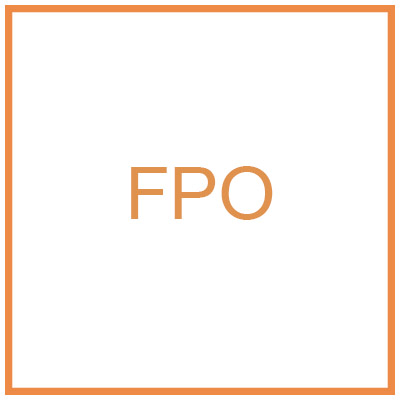Over time, fintech has become commonplace in our lives. We can now easily deposit a check into our bank accounts, manage our investments, or apply for credit all from the convenience of a smartphone. As things like cryptocurrency become more relevant, it’s as important as ever to ensure your FinTech applications/websites are optimized for the future. With the increased convenience, however, also comes an increased risk of cyberattacks or personal data breaches which can hurt consumers the most--their pockets. Let's break down how to prepare your fintech products for consumers.
FinTech is Accelerating Fast
In the last decade alone, the financial technology industry has seen exponential growth due in part to the popularity of e-commerce and digital payment/lending companies such as Venmo, PayPal, Stripe, and Square. During the pandemic, many of these FinTech companies saw massive growth, with the likes of Chime, Stripe, and Robinhood making the Forbes 2021 Fintech 50 list.

Fintech trends demonstrate that people would rather manage their money and business online than deal with more traditional financial services. According to Ernst & Young’s Global Fintech Adoption index of 2019, FinTech adoption trends among consumers rose from 16% in 2015, to 64% in 2019. Consumers enjoy the convenience of being able to easily send payments and take advantage of unique features such as converting a foreign currency, transferring payments directly to their bank, and more options for contactless payments have been welcomed in the wake of the COVID-19 pandemic. A major challenge that Fintech companies face as their apps or services grow is protecting their users from security threats. Traditional banks have vaults, cameras, guards, and other means of defense to keep their assets safe, but when it comes to virtual banks, things are much harder. Consumers are more and more concerned about the safety of FinTech, with 71% of adopters in the Ernst & Young study responding that they “worry about the security of [their] personal data when dealing with companies online.” That’s why it’s important to have a trusted testing partner who can take every precaution to help mitigate the risks that come with launching and maintaining a Fintech platform.
Cryptocurrencies & Blockchain

Crypto technology allows users to exchange messages--and in the case of FinTech, financial information--that are encrypted using a code or key, that can then only be decoded and viewed by the intended recipient. These secret or “crypto” keys are what allow us to send Venmo payments to tip our hairdressers or catch up on rent with our roommates, but apps also present certain security risks and vulnerabilities for some of our most sensitive data.
With the rise in interest in faster, peer-to-peer transactions, Blockchain Technology created a (mostly) secure method of exchanging payments (or “tokens”) through a sort of digital ledger. In this respect, cryptocurrencies are able to be exchanged in a decentralized format, bypassing the traditional format of needing a centralized lender or bank. Unfortunately, the decentralized format of cryptocurrencies is such that unlike a stolen credit card--which can be a scary but resolvable situation--stolen currencies such as Bitcoin are often lost forever. Cryptocurrency Security Standards (CCSS) have been established for both mobile and web applications used for financial transactions. Users are becoming more accustomed to examples of these security practices, such as two-factor authentication (a verification code sent via text or email to allow the login attempt or transaction), but are also advised to take other security measures to protect their online financial information and assets:
- Be aware of phishing scams: Look carefully at the email addresses used by companies that hold your financial information and check for careful misspellings or “off” characters
- Use only your own devices to interact with FinTech: Don’t log into your financial accounts from public computers or smart devices, as they could be infected with malware
While consumers are advised to take personal precautions in safeguarding their financial security, companies are also bound to provide the highest level of security possible for their customers. At PLUS QA, we have a dedicated team of testers working in a regulated and compliant environment, similar to a bank; since your users’ security is paramount, we have strict, secure procedures in place to ensure that the highest level of confidentiality is maintained throughout the testing process.

Crowdtesting is Risky Business
Crowdtesting presents a unique set of security challenges which makes it unideal for supporting a financial technology project. Testers are generally made up of large groups of untrained users worldwide with no particular loyalty to a brand or product. Since each cannot be personally vetted, the risk of compromising confidentiality is much higher when compared to non-crowdtesting solutions.
PLUS QA offers guaranteed device coverage while also protecting our customers' data by always testing on real, physical devices in a single, secure, and centralized environment. Devices are kept on-site and stored within a bank-like vault that is locked and monitored, and our network is protected by firewalls.
Commitment to Confidentiality
PLUS QA works with some of the largest brands and agencies in the world and with that comes a responsibility to protect their privacy and the personal data of their users. After testing each day, all apps, screenshots, console logs, browsing history, cookies, cache, and other locally stored data from testing are cleared from our devices and workstations. We take security compliance seriously. In addition to completing background checks, each PLUS QA employee signs a strict non-disclosure agreement to protect the secrecy of confidential information in your project.
Our commitment to confidentiality combined with our 14 years of experience testing e-commerce, financial technology services, and digital payment platforms makes PLUS QA a trusted partner for your next FinTech testing project.

